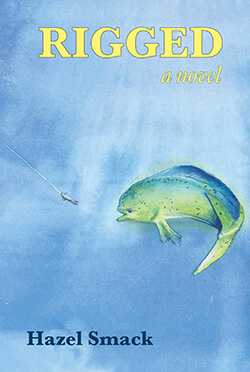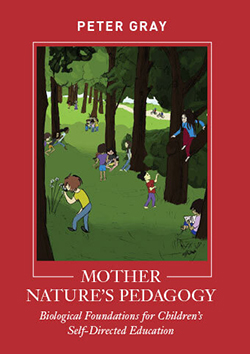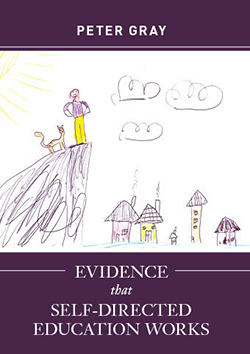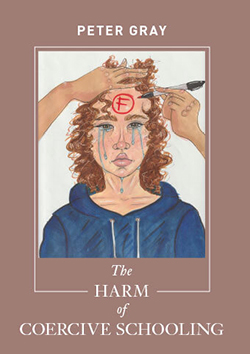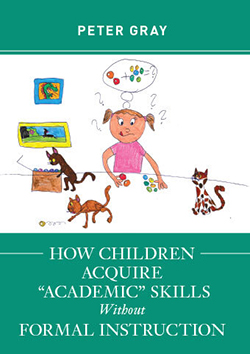Tipping Points Press amplifies and highlights the diverse voices of this movement, in order to advance our mission of making Self-Directed Education a legitimate, accessible option for all families.
You can purchase our print books on Bookshop.org or see below for a list of publications and eBooks.
Rigged
by Hazel Smack
For Fisher Haskins, school is a torturous waste of time, and not just because he can’t shake his reputation as the nice-but-dumb kid. After his evening job washing boats on The Row, he barely has time to scarf down leftovers, get through his mind-numbing homework, and catch a few ZZZs.
Until recently, staying busy had worked just fine to distract Little Fish from facing life’s big quandaries, like, are some people destined to be eternal losers? Who decides what “winning” even means? And why does he feel like a walking magnet for every asshole on the island? If his dad were around, maybe he’d have some answers. Or would he be too wasted to care?
Our first publications below are a set of four small books composed of articles that Peter Gray has published as blog posts for Psychology Today. Peter has waived royalties on these books, so all profits go to support ASDE and Tipping Points Press. The first $8,000 of profits from these four books will be used as advances to publish the writing of Women of Color. Half of all proceeds there after will also be used as advances for Women of Color authors.
Mother Nature’s Pedagogy: Biological Foundations for Children’s Self-Directed Education
by Peter Gray
Children come into the world biologically designed to educate themselves. Their natural curiosity, playfulness, sociability, willfulness, adventurousness, tendency to look ahead, and desire to do well in the world were all shaped, by natural selection, to serve the function of education. In this collection of essays, developmental psychologist Peter Gray describes, with research evidence, how these natural tendencies play themselves out in children who are not schooled but, instead, are allowed ample time and opportunity to exercise their natural educative drives. He explains, especially, how children learn from one another when allowed to play freely in settings where they are not segregated by age. In addition, he presents evidence that children come into the world with prosocial drives-to help, share, and comfort-that grow ever stronger when adults allow them to grow. He also discusses ADHD as a natural and valuable personality variation, not a disorder, which causes problems in the typical school environment but does not interfere with Self-Directed Education.
Paperback: $12.95 | Ebook: $9.99
Evidence that Self-Directed Education Works
by Peter Gray
Theory is one thing; empirical evidence is another. Is it true that children can educate themselves well, without coercion or coaxing, when provided with a supportive environment and plenty of opportunity to play, explore, observe, and socialize? In this collection of essays, developmental psychologist Peter Gray presents evidence from a variety of sources that this indeed is true. One essay points out the amazing amount that little children learn before anyone attempts to teach them in any formal way. Another presents evidence from anthropological research that children in hunter-gatherer cultures educated themselves well, for life in their culture, with no formal instruction. This is followed by an essay summarizing the results of research showing that graduates of the Sudbury Valley School-a school designed for Self-Directed Education-have succeeded very well in higher education, jobs, and life in general. The final seven essays all deal with the results of research, conducted by Peter Gray and Gina Riley, into unschooling families and the lives of adults who grew up unschooled. “Unschooling” here is defined as the variety of homeschooling in which children are not subjected to an imposed curriculum but are allowed to follow their own interests and thereby educate themselves.
Paperback: $12.95 | Ebook: $9.99
The Harm of Coercive Schooling
by Peter Gray
Children, like all human beings, crave freedom, but they are not free in school. Schools operate by methods of coercion (a “request” in school is really an order), enforced with reward, punishment, and threats. Coercion interferes with children’s natural, joy-filled and interest-filled ways of learning and turns learning into “work.” In this collection of essays, developmental psychologist Peter Gray describes also how schooling promotes bullying, cheating, and showing off; contributes to high rates of anxiety, depression, and even suicide among students; aims to push everyone, regardless of the shape of their personality, through the same square holes; and leads to a lifetime of anxiety dreams. The last two essays show how the harm has moved down even to the youngest students, caused by the misbelief that academic training should start in kindergarten and before. This collection is for everyone who cares about children’s wellbeing.
Paperback: $12.95 | Ebook: $9.99
How Children Acquire “Academic” Skills Without Formal Instruction
by Peter Gray
Children who grow up in a literate and numerate environment do not need to be taught how to read or how to use numbers to calculate. They pick these skills up in the course of their everyday living. In this collection of essays, developmental psychologist Peter Gray presents the evidence that this is so. He also presents evidence that teaching-especially when it is forced and comes too early-can interfere with children’s learning to read and calculate. In addition, in one essay he describes the difference between Self-Directed Education and progressive education, and in another he presents evidence refuting the claim that children lose academic skills during summer vacation from school (the so-called “summer slide”). This book is especially valuable for parents who are thinking of opting out of standard schooling for their children but are concerned about their children’s acquisition of academic skills. It is also valuable for educators who are interested in stretching their understanding of how children naturally learn the kinds of skills that schools try to teach.
Paperback: $12.95 | Ebook: $9.99
